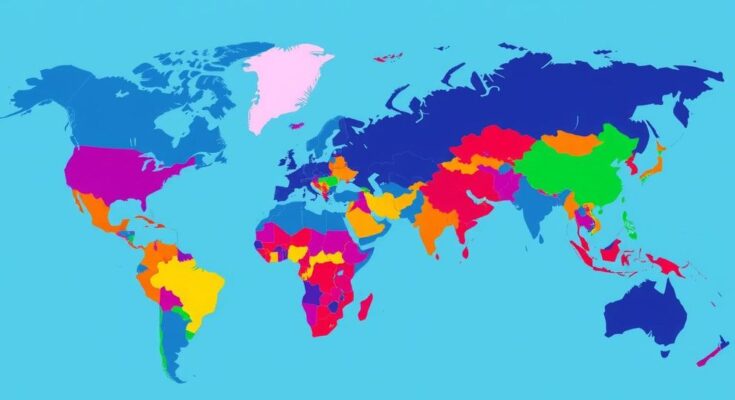The Trump administration is considering a travel ban targeting citizens from up to 43 countries, proposing a flat ban on 11 countries and restrictions on 10 others. An executive order mandates identification of countries with deficient vetting practices. Legal challenges to previous travel bans highlight ongoing tensions between national security and immigration policy.
The Trump administration is contemplating a travel ban potentially impacting citizens from up to 43 countries. This new proposal, which may expand beyond previous restrictions, includes an outright ban for citizens from 11 specific countries, among them Afghanistan, Cuba, Iran, and Venezuela.
Additionally, the plan features an “orange” list, identifying 10 nations, including Belarus and Myanmar, that would face travel restrictions but allow affluent travelers entry under rigorous conditions such as mandatory interviews for visas. This list reflects ongoing assessments by diplomatic and security officials regarding each country’s security practices.
An executive order issued by President Trump mandates the State Department to compile a list of countries deemed deficient in vetting and screening, with a deadline for completion set within 60 days. Ongoing evaluations from relevant agencies are integral to the process, with the focus on safety and national security in the visa application process.
Key issues arise regarding existing visas and green card holders, particularly in light of recent actions by the administration. The ambiguous reasoning for certain countries’ inclusion, such as Bhutan and the proposed treatment of Russia, hints at complex geopolitical considerations.
Furthermore, a draft “yellow” list of 22 countries will be given a 60-day window to rectify perceived deficiencies to avoid imposed restrictions. The administration aims to ensure compliance on issues such as traveler information sharing and passport security practices.
This proposed travel ban echoes past endeavors by the Trump administration, with earlier iterations encountering legal challenges. In contrast, President Biden rescinded these bans shortly after taking office, promoting a more inclusive immigration policy. The current administration seeks to balance national security with foreign relations and immigration reform.
In conclusion, the Trump administration’s potential travel ban outlines a broad strategy affecting a significant number of countries. It includes stringent restrictions based on perceived security deficiencies, while also exemplifying the complex intersection of national security and diplomatic relations. The proposal’s evolution leading into the White House indicates ongoing evaluations by various governmental agencies, reflecting the nuanced challenges of immigration policy in the United States.
Original Source: newsroom.gy




